|
“You’re not going alone, are you?” In every conversation I have had about my upcoming PCT thru-hike, the question has popped up. Initial enthusiasm quickly fades into concern, until people learn that I am starting off with my boyfriend. “Oh, that’s fine then, because all alone …” For the longest time, I assumed everyone setting off on an epic adventure, such as hiking all the way from Mexico to Canada, received the same level of concern. Turns out that’s not the case. I recently asked my partner whether he gets the same reactions: “People do ask me if I am going alone, but their main worry is that I will be lonely, not that it would be unsafe.” The funny thing is that not everyone seems to mean “it’s good that you’re going with someone,” when they voice their relief. What they are really saying – perhaps even subconsciously – is that it is good that I am going with a guy. When I set off on hiking trips with female friends in the past, not all sceptics were reassured. Conclusion: while going with another woman is good, being accompanied by a man is still considered safer. Gender-based concernThe disapproval of me adventuring solo is often phrased very subtly. Sometimes as direct criticism, but usually it takes the form of well-intentioned concern. And concern is not a bad thing. It is a sign of love and care that should be taken into consideration. But it becomes problematic when it is tied solely to my gender instead of to my skills and experience level. While there are still very real risks involved with being a woman in most places in the world, the dangers I am most likely to face in the wilderness will not discriminate. A bear does not care about my gender. A river will not pull me under more. A tree is not more likely to fall on me. And I am not more prone to slipping and falling, getting lost and dehydrated, or being struck by lightning than any man on trail. And yet, the narrative I hear time and time again implies that I am somehow more fragile and less capable of making it on my own in the backcountry. While male peers are encouraged and praised for their bravery and strength, I am regularly told – directly and indirectly – that I am simply “lucky” nothing has gone wrong so far. The message is clear: it is not my careful evaluation of situations and sound judgement that guide me through adventures safely, but sheer luck. It is only a matter of time before my “irresponsible behaviour” turns me into the next headline, if I am to believe the critics. "Concern becomes problematic when it is tied to your gender and not to your individual skills and experience level." Rethinking the narrativeThe human brain is wired to believe the information it is fed systematically. Narratives like these leave women – like myself – feeling insecure and hesitant to take on challenges. They place mental barriers in the way of women wanting to explore the outdoors and instill misplaced fears they will actively need to overcome to pursue their goals.
On this International Women’s Day, let’s rethink the narrative. It is ironic that we still teach women to ignore and downplay inappropriate male behaviours that could actually harm them, yet discourage them from going after empowering experiences that will better equip them to stand up for themselves in the face of real threats. So when I set off soon, show me that you care, but do not ask questions you would not ask if I were a man. Because quite frankly, I am tired. Tired of being deemed lucky instead of capable. Tired of hearing the world is too dangerous for me and that it would be foolish to think otherwise. Tired of having to prove my worth, while I know the strength that resides within.
4 Comments
Care to break a leg next time you’re out hiking with me? Develop mild hypothermia or suffer from heat stroke? You’d be in good hands. After four days of lectures, drills and simulations, I am officially Wilderness Advanced First Aid certified! In December, Stefaan and I signed up for a four-day Wilderness Advanced First Aid (WAFA) course taught by Wilderness Medical Associates International and hosted by Outward Bound Belgium at the Chateau Varoy in Anhée. From 8:30am until 6pm, we broke limbs, burnt ourselves, fell out of trees, got hit by lightning, cut our arms, went unresponsive, developed severe hypothermia, had allergic reactions, experienced volume shock, hit our heads, choked, suffered from urinary tract infections, had strokes and heart attacks, … You name it, we had it! Four intensive days of lectures and drills taught us how to assess emergency situations and provide medical assistance in the field. We also learnt to determine when an emergency evacuation is necessary and how to get a patient out as safely as possible, while also keeping ourselves and others out of harm’s way. Signing up for a WAFA course had been on my mind for years, but it turns out that I am incredibly skilled at making up excuses. Medical conditions have made me squeamish for as long as I can remember, sometimes even making me faint. But with huge hiking plans on the horizon, it only felt right to do the responsible thing and finally take the course … … which leads me to the big announcement. Two years after the pandemic cancelled my plans to thru-hike the Pacific Crest Trail, Stefaan and I will finally be setting off from Campo this April! If all goes well, we should arrive at the Canadian border sometime in September. I sincerely hope none of my future blogs will include any of the techniques we practised during the course. But if disaster does strike, I now feel confident that I will handle the situation in the best way possible. While first aid courses aren’t cheap, that peace of mind is priceless to me. Photos by Diederd Esseldeurs, Stefaan Van wal and myself
In her article ‘For women, running is still an act of defiance,’ Rachel Hewitt describes the fears she experiences while running alone. Unsurprisingly, they are almost identical to the ones I, and so many other women, face when hiking: “Running’s emotional windfalls couple a sense of profound freedom with moments of euphoric joy. But for me they are always cut through with the fear that as I run alone, a man will abduct, rape, attack or murder me.”
The fear of falling victim to an act of violence perpetrated against me because of my gender is the main reason it has taken me ages before I dared to hike alone. While I love the liberation that comes with hiking solo and reconnecting with nature without the distractions of making conversation, these adventures are never carefree. Sooner or later, the irrepressible urge to look over my shoulder re-emerges. Did someone follow me? Will someone drag me into the bushes? Is that cyclist out to get me? Am I an idiot for being out here? People sometimes ask if I worry about getting lost, hitting a storm or encountering a wild animal, but the truth is that even in nature, my biggest fear is still the off chance that one ill-intentioned individual might be out to harm me. Statistically, of course, the odds of falling victim to crime in nature are low. You might even argue that hiking through a forest is far safer than walking alone in any city. In fact, I too have been followed, cat-called and groped multiple times when doing the latter, but never when doing the former. Yet my uneasiness does not seem to respond to statistics. When I was hiking through Jordan with a female friend, people called us ‘fearless.’ If only they knew that with every rustle I heard at night, my body would tense up completely. Even though Jordan might well be the safest country I have ever lived in, I would wake up exhausted after a long and wired night, feeling grateful that nothing had happened to us. These are feelings my friend and fellow hiker Katrien can relate to: “When thru-hiking solo, I feel safer out in the wilderness than I do closer to society. Sure, there are coping strategies: never telling anyone exactly where you’re going for the night, purposely letting your social media posts lag behind, making up partners that you’re catching up to or friends that are waiting for you in the next town. But I shouldn’t have to. I don’t have to wonder if I’m an idiot for being there on my own, just because of my gender. I have every right to be there. And it shouldn’t make me feel afraid.” So whether or not the threat is real, the fear most definitely is. And it is holding many women like me back. It is instilled in us by a society that tells its daughters not to go out alone. It is perpetuated by a society that keeps reminding women of their own responsibilities in not getting raped, while too often turning a blind eye to toxic masculinity. It is sustained by a society that calls me ‘brave’ – or even ‘foolish’ – for doing the same thing that makes my male counterparts ‘strong’ or ‘tough.’ While I consider myself lucky to live in a safe country, where both men and women can hike freely, that is not equality. I hope I live to see the day when everyone can walk wherever they want without feeling hypervigilant. But until then, I will keep pushing my own boundaries, one step at a time. 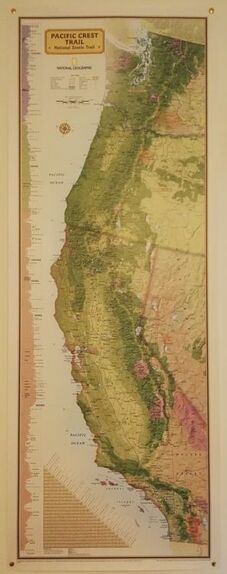 Sometimes people call me fearless. They probably don’t know me very well. Worry might as well be my middle name. I am the kind of person who has already weighed the pros and cons of five potential scenarios before something even happened. Checking under the bed was a nightly routine for longer than I care to admit and overcoming my fear of picking up the phone took the better part of my high school career. People meeting me today also assume that I must have always loved hiking. That, my poor parents can confirm, is definitely not the case. In fact, some days I still wonder whether I just excel at tricking myself into believing that personal growth through suffering is fun – ignoring the pain, discomfort and exhaustion that appear to be regular by-products of my escapades. So how did I become the avid hiker I am today? “Are you running away from something?” my friend Bassam once asked me after a weekend spent walking in the hills together. The truth is, I quite possibly was. Ten years of volunteering and working in the humanitarian sector had left me feeling disillusioned. The activism I had once poured my heart and soul into suddenly seemed void, messy and meaningless. And then there it was. During my time in Amman, I found the Jordan Trail. Or rather, it found me through my friend Katy, who I regularly accompanied for day hikes. Before I knew it, the trail became the place where I could escape my anxiety and budding identity crisis. Yet more than a distraction, it also provided me with a new purpose. And so, I got hooked on leaving the city behind every weekend to work towards a clear and attainable goal: walking the length of Jordan. I soon discovered that compulsive thinking and worrying get paused when hitting a trail. In hiking, I found the most powerful antidote to the curse of busyness, allowing me to feel free and see more clearly. It empowered me in ways I was not expecting and reminding me of how simple life can be when we choose not to complicate it. As Ton Lemaire wrote in his book Met lichte tred: “The walker is freed from the duty of productivity and efficiency, and freed from the eternal time pressure that in normal live narrows and impoverishes the experience of the world.” Hiking is no longer just an escape to me. Rather, it is a way to experience beauty and adventure, a way to redefine my relationship with the world around me. Five months of living in nature therefore seems just as worthwhile an objective as any other, which is why I am committing to thru-hiking the Pacific Crest Trail with my partner Fadi this year, all 2,650 miles from the Mexican border to Canada. Do I feel ready? Not really. But being able to embark on this adventure is an absolute privilege, so I choose to feel grateful rather than nervous as I pack my bags and count down to April 30th. Canada, I am on my way. |
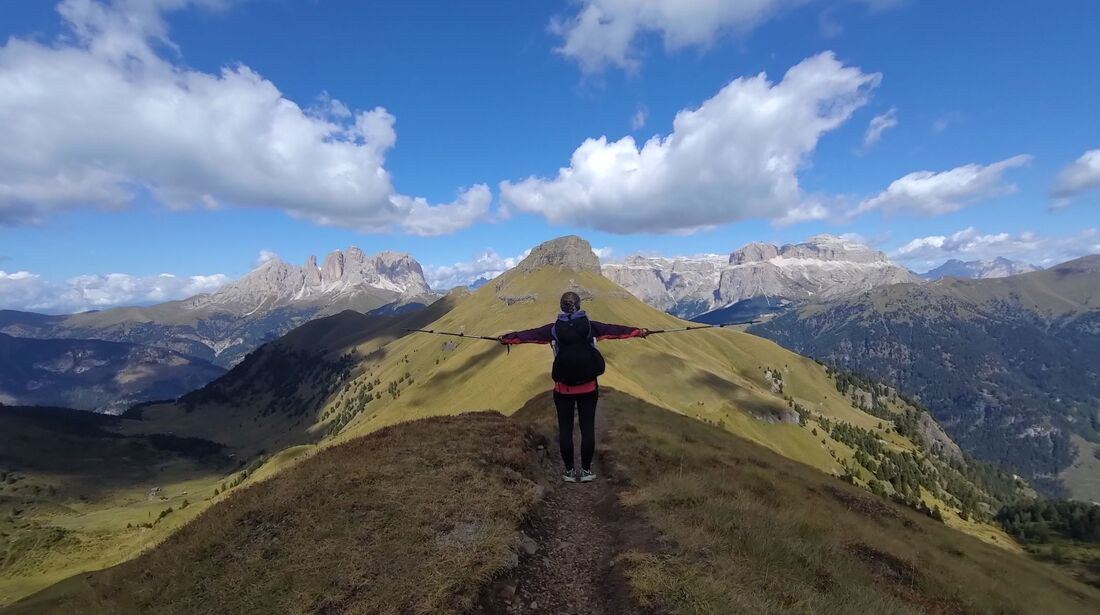
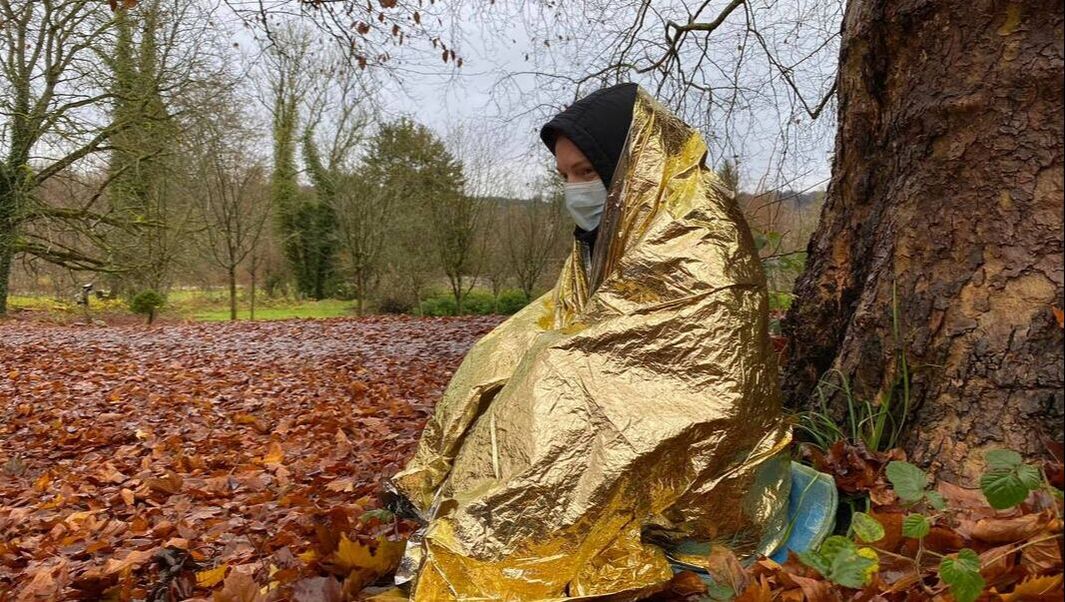
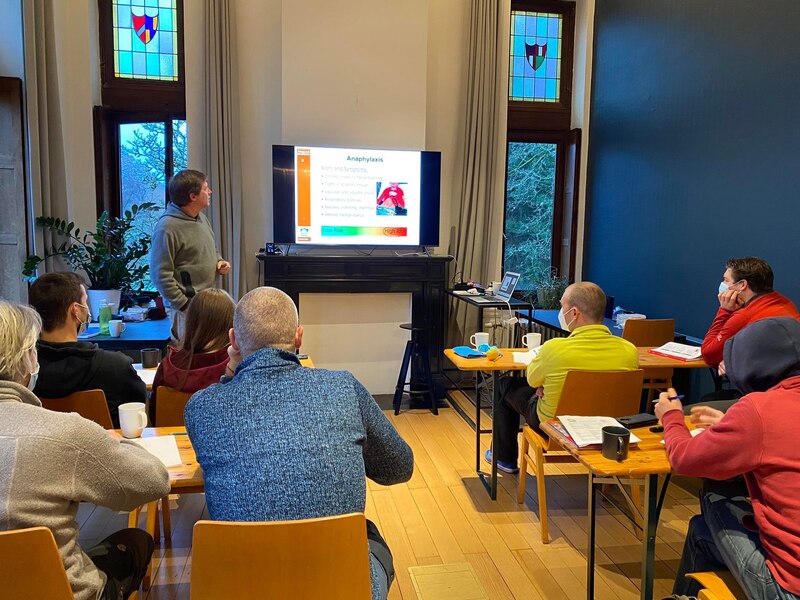
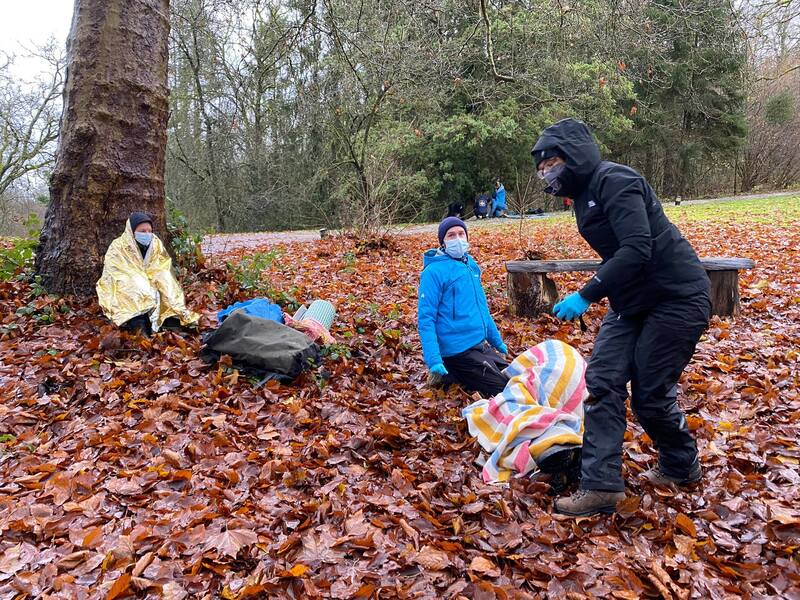
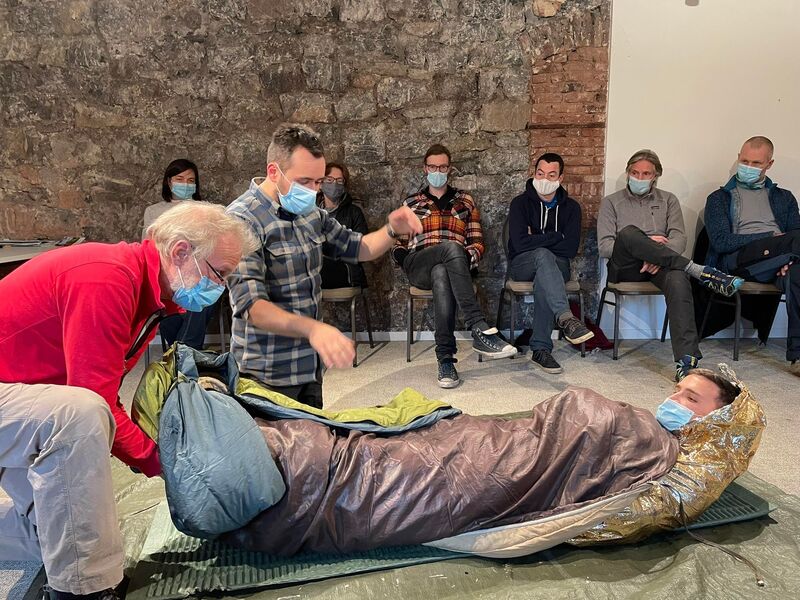
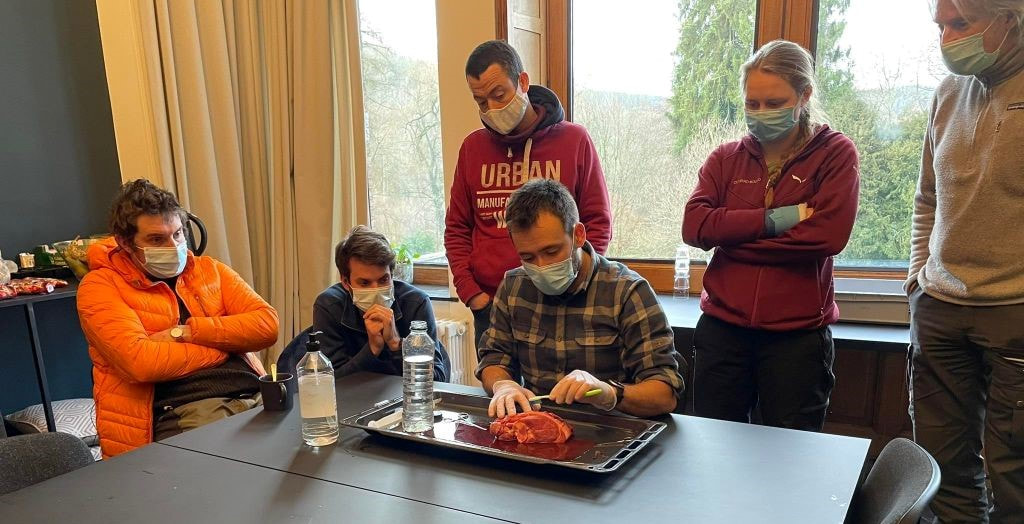
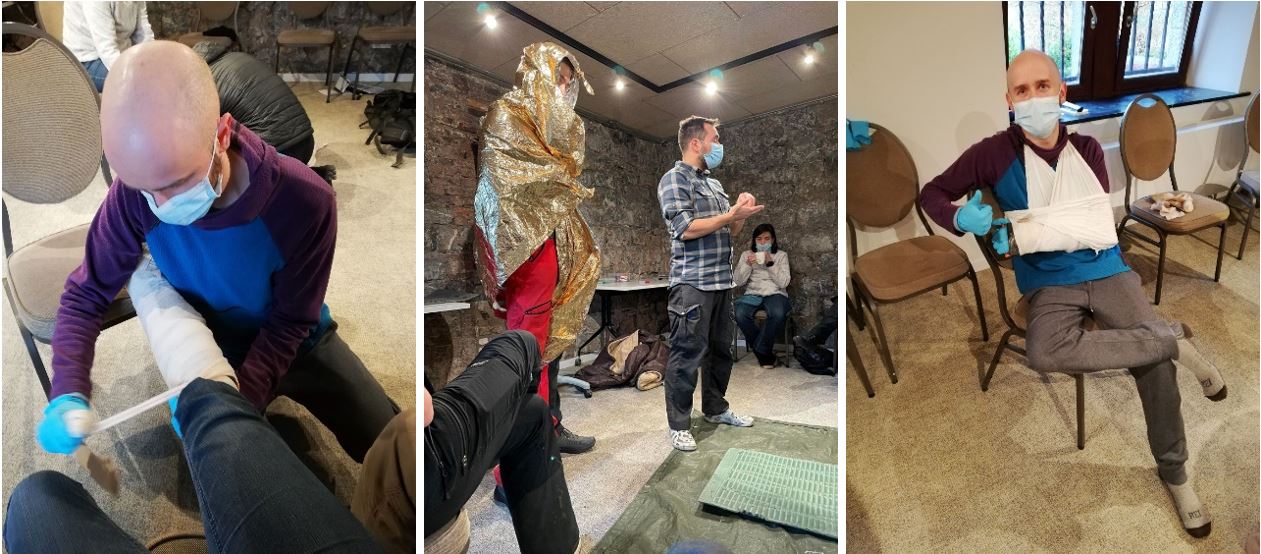
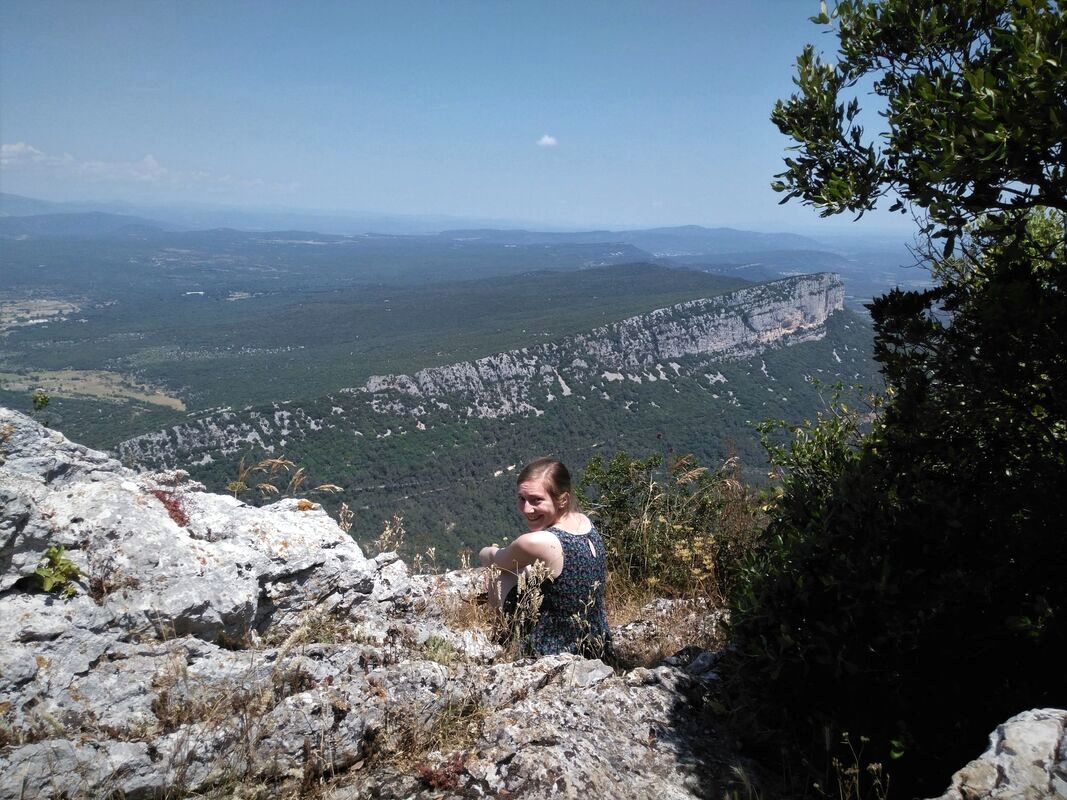
 RSS Feed
RSS Feed
